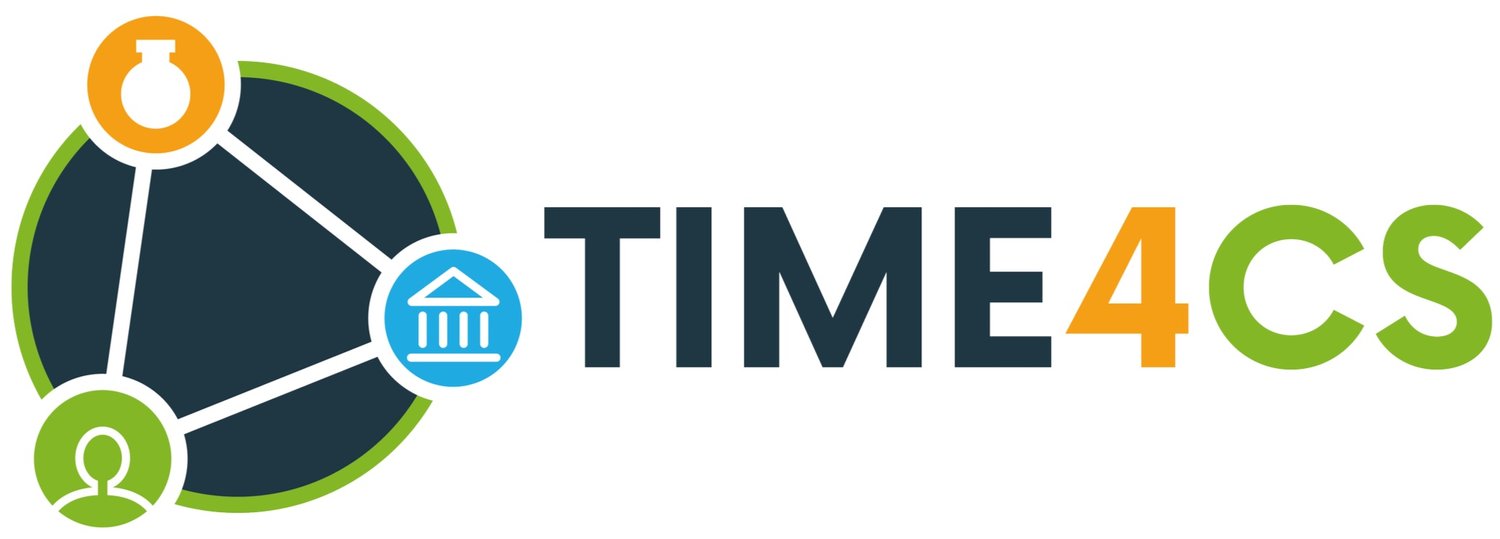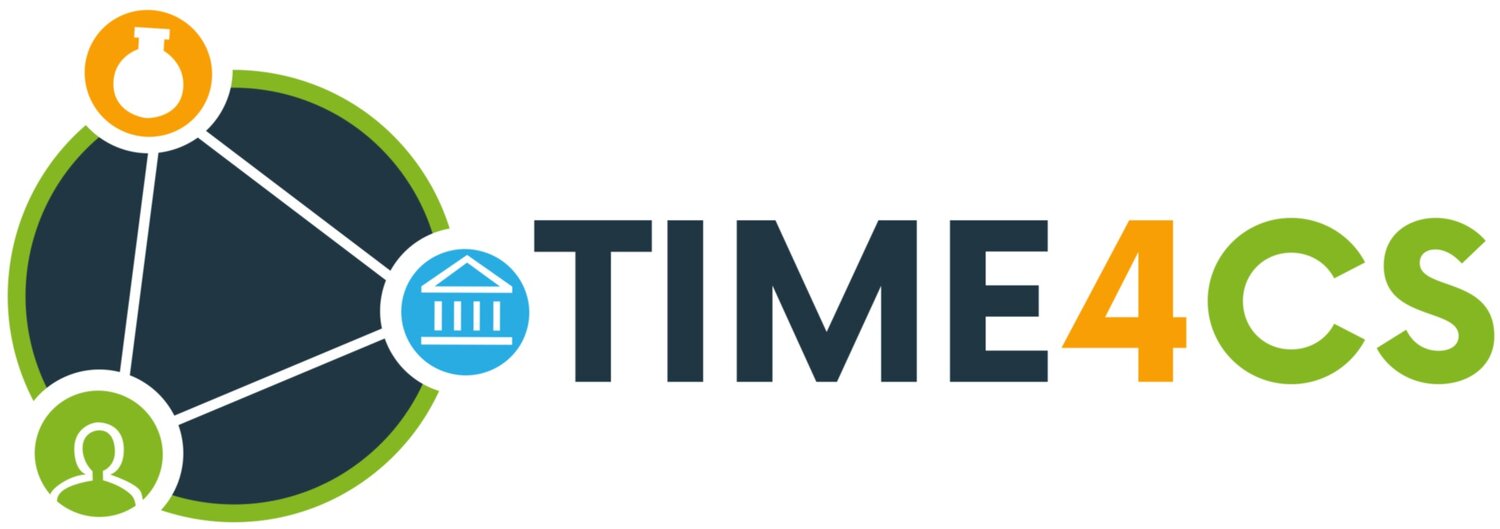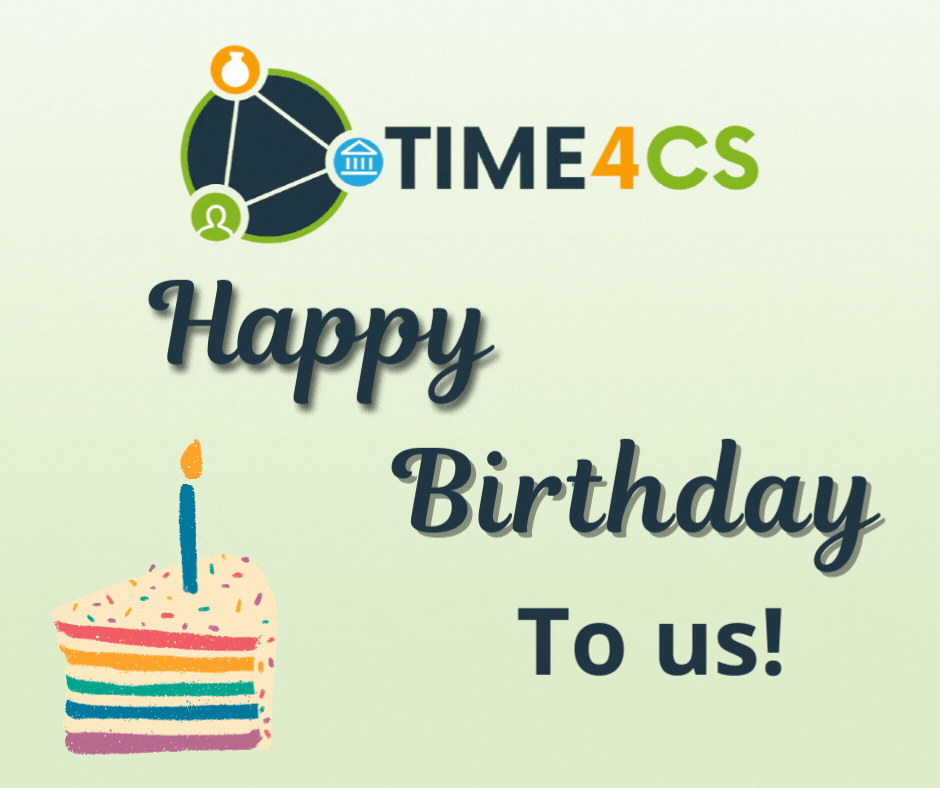1 year into TIME4CS
Kicking off a new EU funded project during COVID-19 time was not easy. No face-to-face meetings, no coffee-breaks to break the ice and only virtual interactions allowed. All of this made quite challenging the trust-building process within a newly formed consortium bound to work together for the next 3 years towards an ambitious aim, such as working on Institutional Changes to promote Citizen Science (CS) in Research Performing Organisations (RPOs). This was one of our main concerns one year ago, when we started the TIME4CS adventure with an online Kick-Off meeting on January 11th-12th. One year later, we can reflect upon how we faced this challenge, what we have achieved so far and what are the next steps ahead of us.
What we achieved?
TIME4CS ultimately aims at supporting the institutional adoption of CS in RPOs. We developed a framework based on four different areas that would require an intervention (Intervention Areas) to trigger an institutional change. In each area, we identified some examples of concrete actions (Grounding Actions) that RPOs can undertake to start the process of laying the foundation of long-term institutional changes. The identification of those actions was one of our earliest activities. Luckily enough, we could rely on our 3 most experienced partners (Front-Runners) in the institutional adoption of Citizen Science: Univeristy College London, Aarhus University and the Citizen Science Center Zurich. Through the analysis of their history and activities since their establishment, mapped with the Intervention Areas, we identified a pool of 24 Grounding Actions (D1.2 Best practices repository of TIME4CS Front-Runners). Moreover, we aimed at integrating this analysis by capturing the wide range of perspectives from RPOs, to better understand the process of making CS initiatives a sustainable practice in research. To this aim, we established a collection of Case Studies through a tailored survey. So far, we have collected more than 30 institutions evaluated across eight domains of indicators to explain the institutional changes to support CS (D1.1: Collection of Case Studies of institutional adoption of CS). Thanks to this study, still ongoing, we expect to learn more about success factors for the institutional adoption of CS.
At the same time, our four implementing organisations (Implementers) – the Centre for Genomic Regulation, Kaunas University of Technology, Tyndall National Institute and Vita-Salute San Raffaele University – started to define their personalised roadmaps to promote CS practices in their organisations, by the selection of specific Grounding Actions to carry out in the project’s lifetime and, at the same time, defining some long-term objectives to be achieved (D2.1: Compilation of roadmaps and Grounding Actions for the Implementers - First Version). Their journey will be constantly evaluated with the final goal of developing a set of indicators for institutional changes in RPOs towards an increased support of CS. For this purpose, we established an evaluation plan since the beginning of the project (D5.1: Evaluation and Impact Assessment Plan).
What we learned?
TIME4CS strongly relies on a process of knowledge transfer and mutual learning between our Front-Runners and Implementers, to support the realisation of the personalised roadmaps. The process requires trust and collaboration between partners. At the same time, building trust requires time to get to know each other and reach a mutual understanding. We had planned a set of activities to be held in the first year to reach such objectives. However, we had to adapt our planned activities to the online setting due to pandemic restrictions. Then, we organised a set of online internal workshops between Front-Runners and Implementers (D3.4: Report on TIME4CS Knowledge Transfer from Front-Runners to Implementers). Those workshops showed us the importance of collaboration and represented a crucial step for us for building the basis for the mentoring activities necessary to support the implementation of the Grounding Actions to come in the next two years. Collaboration within TIME4CS and outside our consortium. In this first year, we networked with other similar projects (D6.5: First version of TIME4CS Clustering activities and user engagement activities report). We attended common events, promoted each other on social media and communication channels, discussed with our sister projects about how to better join forces and we are committed to strengthen these collaborations in the future.
What we plan?
Our journey is still long. We still have 2 years ahead of us and we just started a new phase in our project. Our four Implementers are currently starting their actions to make CS a research practice supported in their institution. They will not be alone in this adventure. Our Front-Runners will keep supporting them in the frame of our mentoring programme. Moreover, we will keep working on our indicators of institutional changes and we will use the experience of Implementers to refine them. We will also continue our work on the development of case studies and we plan to publish soon a report about factors contributing to institutional adoption of CS. We are also starting to work on our training activities aimed at researchers and RPOs staff members, to share our knowledge with other RPOs interested in following our process and enable the institutional and cultural changes needed for CS. We’re excited about TIME4CS future.
Be part of our future and stay in touch with us!
Author: Claudia Iasillo (APRE)


